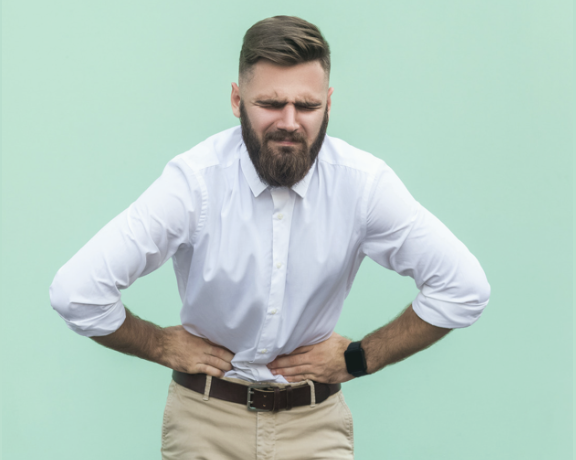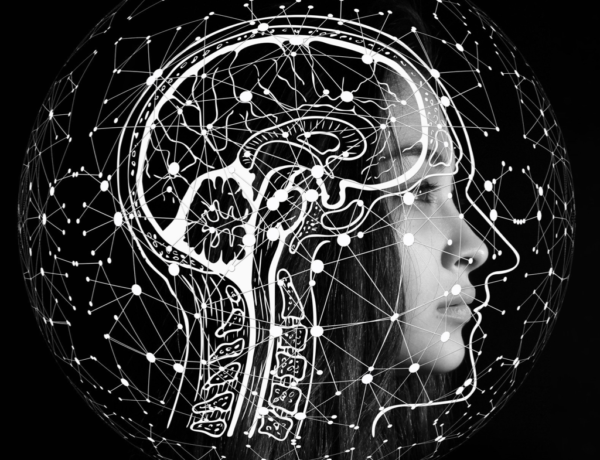Definition:
“Insomnia is the decrease in usual sleep duration and/or impairment of sleep quality with repercussion on energy level the next day. “
Three mechanisms are important in understanding sleep:
- The circadian rhythm: It is approximately 24 hours long.
Some people are morning people (40%) and others evening people (30%). This is essentially genetic. Our circadian rhythm depends on light/dark exposure + other cues such as food, exercise, and temperature fluctuations. This is why blind people do not completely lose their circadian rhythm. The body clock that regulates the circadian rhythm is called the suprachiasmatic nucleus; it is composed of 20,000 neurons. (The brain has about 100 billion neurons). The suprachiasmatic nucleus communicates signals to the brain through melatonin which is secreted by the pineal gland. Melatonin sends messages to the brain after nightfall saying “it’s dark; go to sleep”. Once asleep, melatonin decreases.
- Adenosine: the longer you stay awake, the more it increases, inducing the increasingly urgent desire to sleep, after 12 to 16 hours without sleep.
Caffeine blocks adenosine by occupying the adenosine receptors in the brain. Also, caffeine is broken down by an enzyme in the liver; some people will feel the effects of morning caffeine most of the day, and if they drink another cup of coffee after lunch, they won’t have time to get all the caffeine out of their system to fall asleep easily at night. Here is the effect of caffeine on a spider web compared to LSD, marijuana and speed; NASA experiment in 1980.
- Sleep cycles: REM (rapid eye movement) and NREM (non-rapid eye movement) – in total a 90 minute cycle, which includes 4 phases: NREM 1; NREM 2; NREM 3; NREM 4; REM.
Early night: NREM predominates and serves to “clean” the brain. In contrast, at the end of the night: REM predominates, accompanied by dreams, and muscle paralysis.
Are you getting enough sleep?
If you wake up in the morning feeling like you could still be asleep by 10 or 11 o’clock, you are not getting enough sleep. If you need caffeine to function before noon, you are sleep deprived. If you can wake up without an alarm clock, then you’ve had enough sleep. We need 8 or 9 hours of sleep. Many people neglect this need and create chronic fatigue.
The causes of insomnia:
- The brain :
Sleep depends on the proper balance of neurotransmitters made from proteins: Serotonin is a precursor to melatonin. GABA (Gamma Aminobutyric acid): calming effects, letting go, anti-anxiety. GABA is manufactured from glutamic acid. Glycine is also a calming neurotransmitter of the brain. Dopamine is made from tyrosine and phenylalanine, it is the precursor of adrenaline and noradrenaline which have stimulating effects on the brain. Caffeine, stress, exercise promote the secretion of dopamine, adrenaline and noradrenaline, so they are not recommended at night. - Excitants:
Caffeine; sugar; sports, electromagnetic waves; exposure to blue lights (screens, TV). Also, even morning coffee can affect your sleep at night. - Sleep Apnea:
This is often under-diagnosed. - Adrenals: secrete cortisol, DHEA, adrenaline, noradrenaline.
Cortisol is inversely proportional to melatonin: it rises in the morning and falls throughout the day. The adrenals can be tested with saliva by measuring cortisol. Most sleep disorders are due to an imbalance of the adrenals, but are not recognized. The only 2 recognized diseases are Addison’s disease (hypo) and Cushing’s syndrome (excess). Probably 90% of the population suffers from an adrenal imbalance but does not know it. The adrenals are affected by stress, alcohol, tobacco, caffeine, sugar, stimulants of any kind, emotions, and any internal stress (pollution, heavy metals, poor digestion, etc.). Fatigued adrenals are manifested by: low blood pressure, craving for salty foods, disturbed sleep. - Hormone imbalance:
Sex hormones and adrenal hormones have the same origin, pregnenolone, which is derived from cholesterol. When sex hormones are out of balance, they affect the adrenals and vice versa. - Thyroid: The thyroid regulates all the body’s rhythms, so it has a role to play in the circadian rhythm.
Iodine deficiency contributes to insomnia; so does hyperthyroidism. - Dys-glycemia: an unstable sugar level contributes to insomnia; often due to the excess consumption of sugar, which creates “roller coasters”.
If blood sugar levels are too low at night, the body goes on alert and wakes up. Alcohol: “puts the prefrontal cortex to sleep” (disinhibits) at first; then fragments sleep, so it is not restorative. It reduces REM sleep (dreams). So much so that dreams come during the day, creating “delirium tremens” in alcoholics. - Poor digestion: a heavy digestion disturbs the quality of sleep.
- Artificial light blocks the secretion of melatonin after the sun goes down, and delays sleep.
Blue light (LED) (screens, tablets, phones), prevent twice the secretion of melatonin.
Experiment: 2 hours of reading on a tablet before sleeping reduces melatonin by 50% compared to reading a book; delays melatonin secretion until early morning, decreases REM phases; and decreases energy of people during the day.
Sleep hygiene:
- Respect circadian rhythms, and if possible your own nature (morning or evening).
- Respect the “sleep trains” every 90 minutes.
- Sleep in the dark.
- Sleep without TV, computer, tablet or phone.
- Sleep in an airy room, with little heat (18-19°); to fall asleep, the body needs to be 1 degree lower than normal.
- Be sure not to feel cold at bedtime.
- Sleep without cats, dogs, or other animals that make noise at night.
- If necessary, wear earplugs (sensitivity to noise, snoring).
- Go to bed and get up at approximately the same time.
- Have a good quality mattress.
- Eliminate mold in the bedroom.
- Eliminate potential allergens (feathers, dust mites, etc.)
What is the purpose of sleeping?
Sleeping is used for memorization; concentration, increases creativity. By sleeping, our body triggers a cleansing of toxins from the brain thanks to the glymphatic system, it will also regulate appetite and weight as well as the immune system. Also, sleep reduces the risk of cardiovascular disease and diabetes and regulates mood.
Remedies:
- Practice sleep hygiene
- Regulate adrenal and thyroid function
- Regulate digestive problems
- Rebalance hormones
- Avoid dysglycemia
- Walk in the fresh air.
- Food supplement : ” Sleep 30 Melatonin ” from Diet Horizon : 1 to 3 capsules at bedtime.









No Comments